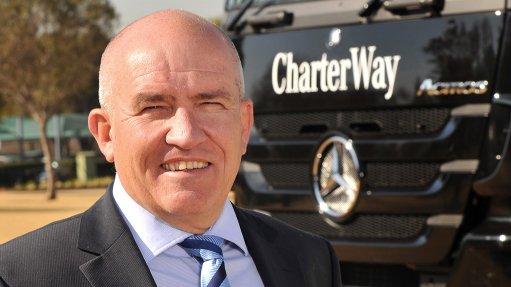
The local truck assembly industry does not fare as badly as widely perceived in terms of the local content on heavy vehicles produced in South Africa, says Daimler Trucks & Buses executive director Kobus van Zyl.
Despite the fact that truck tractors are assembled in semiknockdown (SKD) fashion in South Africa, with the cab fully imported, local content on a linked truck-trailer vehicle can reach around 50%, he notes.
“You use a car as a unit, and a truck-trailer as a unit. No operator uses only the tractor part, so we must think of a trailer and truck as one unit.”
Van Zyl says this means it is important to recognise the partici- pation of local truck body builders when considering a support programme for the truck industry.
The Department of Trade and Industry (DTI) has issued the guilde- lines of its proposed Medium and Heavy Commercial Vehicle Automotive Investment Scheme (MHCV-AIS), which includes a rather unpopular emphasis on the local trimming of truck cabs, in an effort to create jobs.
The scheme proposes financial support for local assembly and content – with localisation expectations greater than in the previous support programme, the Motor Industry and Development Programme, which demanded only SKD assembly – as government works to expand the industry.
Van Zyl, warns, however, that assembly volumes at individual local truck builders are not sufficient to increase local parts content.
The total South African new truck market reached around 31 500 units in 2014.
This has prompted the Heavy Commercial Vehicle Committee within the National Association of Automobile Manufacturers of South Africa (Naamsa), chaired by Van Zyl, to explore opportunities of locally manufacturing certain parts – shared among different truck brands – while, perhaps, also exporting these parts, such as fuel tanks, windows, filters and brake pads, in an effort to gain economies of scale.
It may also be possible to con-vince components manufacturers, based abroad, to set up shop in South Africa, notes Van Zyl.
The local industry has three to four months “to comment on the guidelines, as well as to provide alternative solutions”.
“To achieve this, we hope to create a joint task team with the DTI to look at what is possible within the local truck industry,” notes Van Zyl.
“We would like to gather product managers across all the truck assemblers to identify opportunities that exist within the parts industry, picking the low-hanging fruit that will eventually see the industry increase its local content and employment figures.”
Truck brands such as Mercedes-Benz, Fuso, Freightliner, MAN, Tata, Isuzu Trucks, Hino, Volvo, Renault, Hyundai, FAW and UD Trucks assemble vehicles in South Africa.